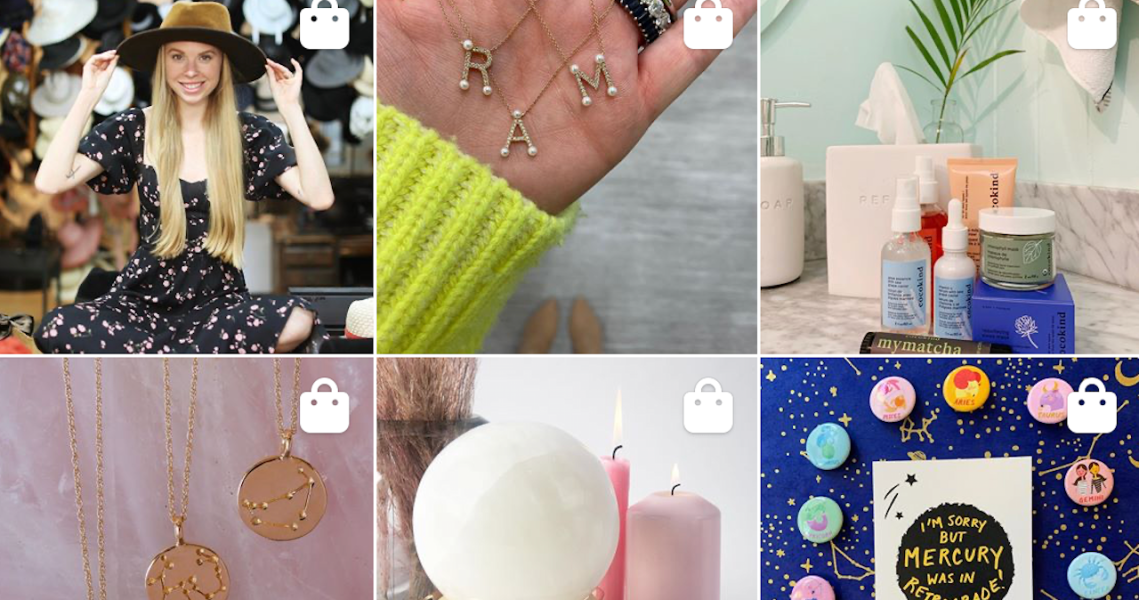Instagram is leaning on one of its own accounts to get more fashion and beauty brands selling through the platform.
2020 is already expected to be a big year for shopping on Instagram, especially for DTC brands. The social media platform started ramping up its Shopping and Checkout features in 2019. Companies including Revolve, Good American, Warby Parker, Balmain and Outdoor Voices all set up shops within Instagram in the last year. But for smaller, lesser-known companies, Instagram is leveraging its @shop account, which launched in May, to help those brands gain traction on the platform. Brands do not pay to be covered on the account, but the hope is that featured brands will use some of the paid shopping offerings. Instagram charges a seller’s fee for brands using Checkout.
Earlier this week, the account reached 200,000 followers through “totally organic growth,” said Leigh Belz Ray, editorial lead of Instagram’s @shop account. “Just based on the features we’re putting out, people are sharing them and talking about them.”
She said the account is run like a news outlet, posting daily content and creating a content plan months in advance. Typically, the team is scheduling the brands it will feature at least two months out. The @shop team sources ideas for upcoming features by looking at what’s trending among the Instagram community.
“We have a team in-house called the Community Lab that we work closely with to track what interests are kind of bubbling up, and that helps us source brands,” she said.
Each day, the account features at least one post in the main feed of a different company, typically a digitally native or direct-to-consumer brand. Most feature fashion or beauty brands. Recently, the account has moved a bit into the home space, as well. The team will post something in the feed featuring close-ups of one of the featured brand’s hero products and in the caption include a quote from the founder. When the @shop team wants to go deeper on a brand’s backstory, IGTV is also used.
Each company is also featured on the @shop Story, which typically provides some background on the brand, including where and how the products are made. Every post and story is, of course, shoppable with product tags on every image leading the customer either the brand’s website or in-app checkout. Only about 20 brands that have been featured on @shop have access to the Checkout option at this time, including jewelry company Dana Rebecca Designs, clothing company Natori and handbag brand Parisa Wang.
Ad position: web_incontent_pos1
For Austin-based apparel company Miranda Bennett Studio (30,700 followers), @shop posted a photo of the founder wearing two pieces from her collection — a linen wrap top and an everyday silk dress — with a product tag for each tag. Belz Ray and her team worked directly with the brand to capture original content for the @shop feed, including still imagery and video.
“As consumers are becoming more and more aware and more savvy about where they’re putting their dollars, what we’re trying to do is share where these products are made and how they can help [the customer]. Having that extra information about who the founder is and where it’s made just empowers that purchaser so much more,” said Belz Ray.
While Instagram did not share specific sales data for featured brands, the platform does share data with those brands that are using Instagram Checkout, meaning customers buy a product in-app rather than linking out to their own e-commerce site. All other brands see traffic and sales driven to their site from the @shop account.
For small brands looking to grow their audience through Instagram, a partnership with the @shop account can work to bring a lot of eyeballs to the brand, said Eva Poureshagh, director of marketing at e-commerce management company Scalefast. According to Instagram data, 130 million people tap to review a product tag every month.
“Receiving Instagram’s stamp of approval on the @shop account gives brands the credibility that is lacking from standard paid ads on social platforms, where users are weary of ads from illegitimate or copycat brands using fake imagery. This endorsement puts shoppers at ease and positions a brand as trendy and relevant on the platform,” said Poureshagh.




